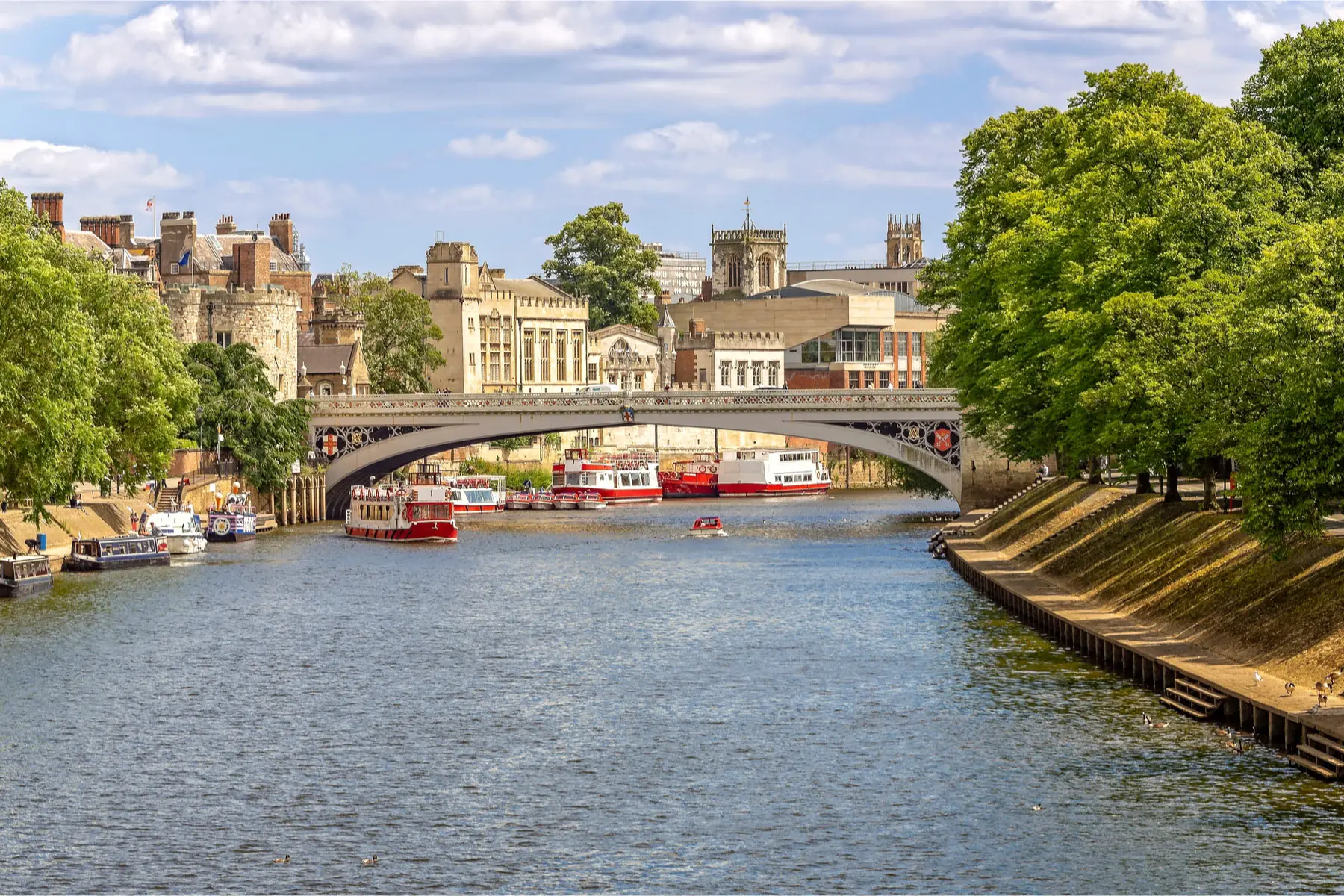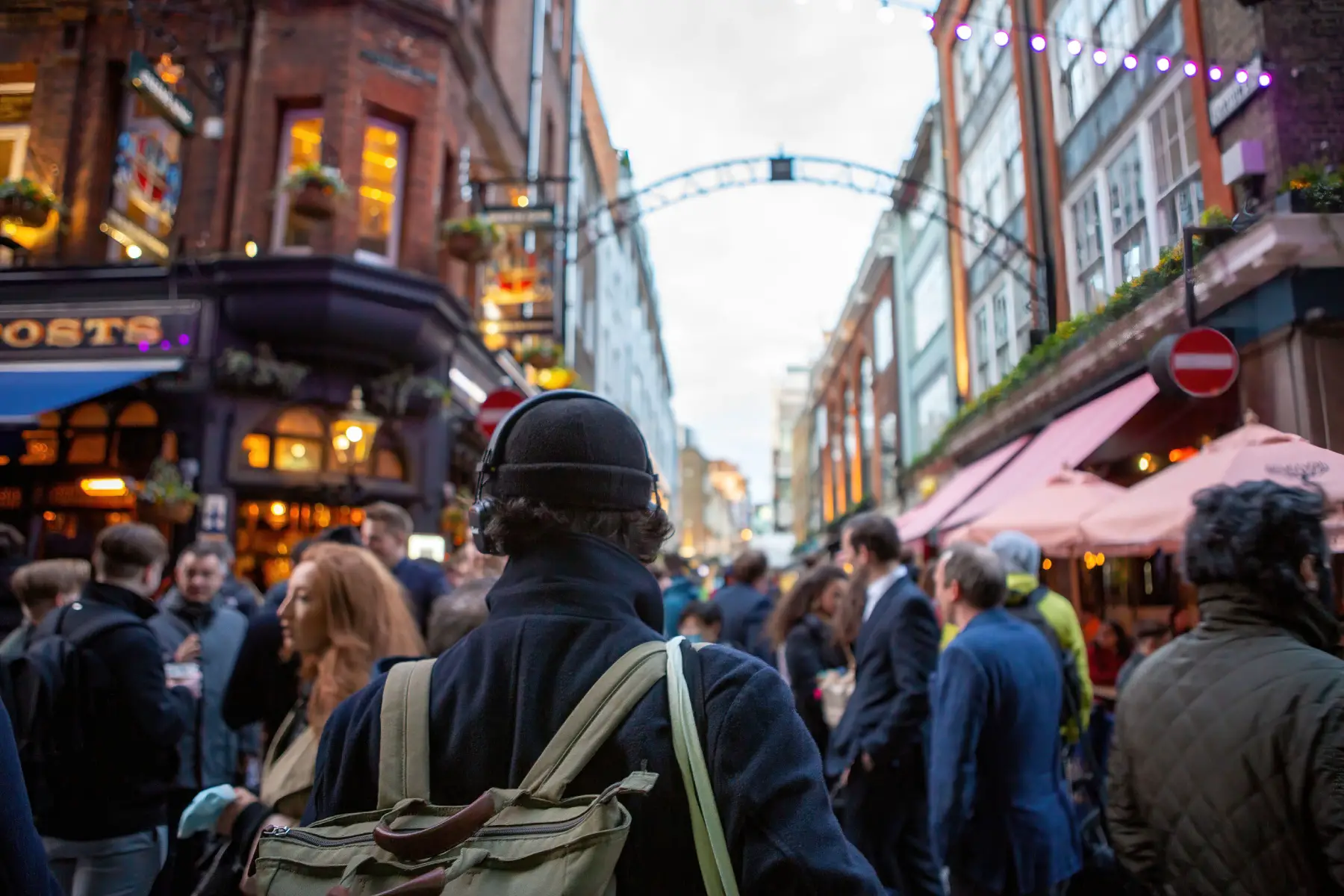There are attractive prospects for expats planning a retirement in the UK. Firstly, English-speaking internationals will appreciate that there is no language barrier. Secondly, the United Kingdom offers a high standard of living and is a great location from which to visit your grandchildren abroad. However, there is much more to consider when planning UK retirement as an expat. What UK visas will you need? What about pension arrangements?
These questions, and more, are answered below with sections on:
Cigna Global
Want access to the best private medical services in the UK? Speak to the healthcare professionals at Cigna Global today and find a policy that’s right for you. Take advantage of their global network of doctors, specialists, therapists and more with coverage tailor-made for you and your family. If you’re starting a new life in the UK, get peace of mind with Cigna Global.
Retirement in the UK
There are many reasons why you might want to spend your retirement years in the UK. Granted, the weather’s not great and the cost of living is pretty high. However, the country boasts good quality amenities, great arts and culture, a world-class healthcare system, and one of the most multicultural capital cities in the world.

It’s also ideal if you’re looking for an English-speaking location with a variety of expat communities. The number of retirees in the UK is also growing. Around 18% of the population was aged over 65 in 2018. This was expected to rise to around 25% by 2050. However, in the wake of COVID-19, the National Statistics office has noted that its projections were based on trends evident before the global pandemic. Nonetheless, there are fewer foreign-born people of retirement age in the UK than native-born.
Who can retire in the UK?
UK citizens can retire and claim a state pension when they reach retirement age. Currently, if you were born between 6 April 1970 and 5 April 1978 your state pension age is 67. It’s possible to retire early if you have a private or workplace pension that allows early withdrawal of funds, or if you have the private financial means to do so.
Citizens from outside the UK can retire in the country only if they are:
- Granted settled status as a permanent resident.
- Eligible to apply for settled status after five years of residence on a valid UK visa.
However, you will need to have been making National Insurance (NI) contributions for at least 10 years to be eligible for a partial UK pension and 35 years to get the full pension.
Retirement in the UK for EU/EFTA citizens
Since Brexit, European Union and European Free Trade Association nationals can no longer move freely to the UK. Those already living in the UK can look at retiring in the country if they applied for pre-settled status by 30 June 2021.
The UK no longer offers a retirement visa and applications to extend stays in the UK as a retired person of independent means have now closed.
If you are a retired person living in the UK and you don’t have access to the UK state pension, you will need to fund yourself through other means – for example, state pension from your home country, private pension, or savings. As such, you must be able to prove you have a net income of £25,000 a year – without working.
Age of retirement in the UK
The current UK retirement age – the age when you start receiving your UK state pension – is 66. However, this is gradually rising to 67 by 2028. It is due to rise further to 68 between 2044 and 2046. The UK government is currently reviewing whether to bring this forward between 2037 and 2039.

It’s possible to take early UK retirement but you can’t claim your state pension until retirement age. To retire early, UK residents may have the option to withdraw private or occupational pensions as early as 55 years old. This depends on the pension scheme restrictions and personal circumstances. There are plans to increase the early retirement age to 57 in 2028.
It is now possible to work beyond your retirement age and still receive a state pension if you’re entitled to one. You will no longer pay NI contributions but may still have to pay income tax, depending on how much you earn.
You can check your UK state pension age here. Also, check the state pension age timetable to see how the government is phasing in the age increases.
Pensions in the UK
The UK pension system ranks ninth in the world on the 2021 Global Pension Index. However, funding your UK retirement on a state UK pension alone is unlikely to be sufficient. The amount you get will depend on your NI contributions. You need to make contributions for at least 10 years to get a partial state pension and for 35 years to get the full state pension.
In addition to the state pension in the UK, there are two other types of pensions:
- Workplace pension, or occupational pension, is made up of monthly contributions from your salary and your employer. All employers must offer a workplace pension scheme, however, you can choose whether or not to join.
- Private pension, or personal pension, which you take out yourself with a pensions provider.
You can also look at planning for your UK retirement by using savings and investment options with UK banks.
Transferring an international pension to the UK
It is possible to transfer an overseas pension to the UK. However, you will need to find a UK pensions provider that is willing to accept the transfer. This is usually much easier if your international pension is with a recognized overseas pension scheme (ROPS).

You’ll need to bear in mind that there may be transfer fees, contribution limits, and tax implications when transferring a pension to the UK. For clarification, you should check with your local pensions office or speak to a pensions advisor.
EU/EFTA nationals living in the UK who have applied to the EU Settlement Scheme can still use any social security payments made in their home countries to count towards their UK pension entitlements. Additionally, the UK has reciprocal agreements with a number of countries to harmonize social security contributions.
If you then decide to move out of the UK during your retirement, you can look at transferring your pension to a QROPS abroad.
Taxes on retirement in the UK
Like most countries, pensions in the UK are considered taxable if your total annual income exceeds the UK Personal Allowance threshold. Taxable income includes money from employment, pensions, benefits, rental income, and some savings and investment interest.
The annual tax-free allowance for 2021–2022 stands at £12,750. Personal income is taxed progressively after this. You can take a tax-free lump sum of up to 25% of your UK pension.
You can usually make tax-free contributions to a private pension of up to £40,000 a year. However, you cannot exceed the Lifetime Allowance which currently stands at £1,073,100.
Best places to enjoy retirement in the UK
Naturally, where you decide to retire in the UK will influence your quality of life – and more importantly how the cost of living in the UK impacts your finances. The counties in the south of England are always popular with a laidback lifestyle, good standard of living, and lower crime rates. However, some of Britain’s larger cities are also among the best places to retire in the UK.
Dorset
On the south coast, the county of Dorset offers stunning coastlines, countryside, and quaint villages with a laidback lifestyle set towards UK retirement. It has a higher percentage of over-65s than the national average and a number of attractive retirement developments in areas such as Dorchester, Poole, and Bridport.

However, property prices can be high. In fact, the average house price is around £390,000 according to Rightmove. Detached properties sold for on average £537,070 in 2021, while flats sold for an average price of £256,903. Terraced homes sold for about £290,000 on average. The cost of living in Bournemouth, which is a popular town with retirees, is around £608 a month. This is without accommodation costs and is around 22% cheaper than London (in March 2022).
York
The city was voted the best place to live in the UK by the Sunday Times in 2018. The historic city of York is also one of the best places to stay active in retirement. Surrounded by countryside, York offers the best of both worlds. Its city center is also traffic-free, as a result it is quieter than other major UK cities.

York also has a relatively low crime rate. However, all of this comes at a price. The average house price in York reached £309,000 in 2021. That’s about £64,900 above the national average. However, property prices are much cheaper than in big cities such as London. In addition, the general cost of living is around £706 a month excluding housing, just 10% cheaper than London.
Greater London
If you love the hustle and bustle of the big city, then retiring in Greater London could be the answer for you. Understandably, house prices and rental costs are considerably higher in the UK’s capital. The cost of living is also expensive, at around £860 a month. This is without housing costs.

However, if you can afford it, London is a very multicultural environment with a vibrant arts and culture scene. It’s also very well-connected in terms of transport, has many amenities, and things to do. As such, London is worth considering if you want a livelier retirement in the UK.
Birmingham
It might not get headlines for being an idyllic residential location, however, Birmingham was ranked best place to retire in the UK. According to the 2016 report by pensions advisory firm Profile Financial, the midlands financial hub is a good place to enjoy your senior years – because it is both cheap and scenic.
It offers excellent amenities including cafes, cinemas, and green spaces, and one of the more multicultural environments in the UK. In addition, the average house price is around £240,445 – just below the national average. Living costs are also much cheaper than in London.
Edinburgh
Edinburgh is a favored hotspot for urban retirees in Scotland. Rich with history and beauty, from its picturesque castle to the Firth of Forth coastline.

The city is also one of the world’s arts and culture capitals, thanks to its annual Fringe and International Festivals. The city has relatively low crime and high property prices, the average home sold for £317,098 in 2021. Living costs are around £670 a month, without housing costs.
Liverpool
Home to the Beatles and a previous European Capital of Culture, the city of Liverpool has undergone much development over the past couple of decades. It is an attractive place to retire in the UK. This is in part due to its reasonable house prices, which are cheaper than many other parts of the UK. In fact, the average home sold for £202,778 in 2021.
The city has a youthful and cosmopolitan atmosphere. However, if you want quiet and leafy suburbia you can find a home in areas such as Sefton Park and Allerton. These areas also benefit from being within easy reach of the buzzy center.
Services, organizations, and clubs for retirees in the UK
You can find a variety of services and activities catering to older expats in the UK. However, this tends to vary according to where you are from and where in the UK you settle. One of the best starting places to find out what’s available and what’s going on in your area is your local council. You can also enquire with your local library or community center about any local groups or activities, or check websites such as Facebook or Meetup.

Bigger cities, where there are often settled expat communities, are more likely to have expat groups or clubs. Many of these cater to specific nationalities. Two of the biggest organizations supporting older people in the UK are Age UK and the Centre for Ageing Better. These can both offer advice on a range of issues as well as link you up with other useful groups and services.
Another option is to buy property in a retirement village in the UK. These are developments that cater specifically to older people (usually those aged over 55), providing independent living and good quality age-appropriate leisure and cultural facilities. Some offer some level of care and support, for example, laundry services or home care.
As with anything, there are pros and cons to living in a UK retirement village. Be sure to read up and research these before making a decision.
Wills and inheritance in the UK
To protect your assets after you’ve gone, it might be worth drawing up a will in the UK. If you already have one drawn up in your home country, you will be relieved to know that the UK recognizes foreign wills. You can also write two wills – one in the UK and one in your home country – as long as one will doesn’t revoke or negate the other.
If you are a UK resident, your assets will be subject to UK inheritance laws after you die. This will vary across the different parts of the UK, this is due to its political system. Inheritance laws also apply to any property that non-residents own in the UK.
Probate and taxes in the UK
Your property and assets will be subject to UK inheritance tax. This includes money, possessions, property, and business assets. There is usually no inheritance tax to pay if the total value of your estate is less than £325,000 or if you leave everything to your spouse/partner, a registered charity, or an amateur sports club. The UK inheritance tax rate of 40% then applies to anything above £325,000. However, there are some tax reliefs and exemptions on gifts and business assets.
If you have worldwide assets, these may be subject to tax in the UK and abroad. Although the UK does have double taxation agreements with a number of countries.
Whatever your circumstances, seek professional advice on UK probate law and inheritance tax when planning your retirement in the UK.
Healthcare for retirees in the UK
The UK’s National Health Service (NHS) provides free public healthcare to UK residents, funded through general taxation payments. If you are a legal resident in the UK then most treatments are free. Some treatments such as emergency medical care and family planning services are available free to all, including to foreign visitors.
However, non-residents and UK residents who live abroad have to pay to use services or take out private health insurance to cover themselves. If you are an expat who has retired to the UK, you can access NHS services for free if you have residency. All you need to do is register with a local GP. You will need to pay a healthcare surcharge as part of your visa application. You also have the option of taking out private health insurance to access private services and any treatments not available on the NHS.
Private health insurance providers in the UK include global companies such as:
Other support for retirees in the UK
As you get older in the UK, you will find various perks offered to seniors and pensioners. These include:

- Public transport concessions such as free bus travel and discounted train tickets.
- Free prescriptions and eye tests if you’re over 60.
- Discounts on many theaters, cinemas, museums, and live sports tickets.
- Concessions on some services, for example, many hairdressers/barbers give discounts and gyms often offer cheaper memberships.
- Older people store discount cards at some large stores such as Boots and B&Q.
- Cheaper days out with the National Trust and English Heritage.
To qualify for some of these perks you have to be of state pension age. While others apply to anyone aged 60 and above.
You can also apply for pension credit if you receive a state pension and are on a low income. If you are eligible for this, you may also be able to get additional support such as:
- Help with housing costs
- Council tax reduction
- Winter Fuel Payment to help with heating costs
- Free TV license if you’re over 75
- Help with NHS dental and eye-care costs
Useful resources
- Age UK – registered charity supporting older people in the UK
- Centre for Ageing Better – charity promoting positive lifestyles for older people in the UK






